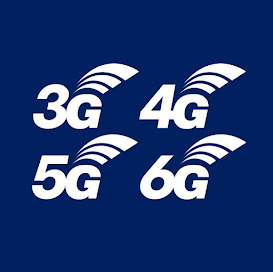 Honestly, I dont know much about phones OS's and I havent cared much about them till date. The only time I start looking at the features, etc. is when I am looking for a new phone. Android is promising to be a bit different and first truly open OS which can revolutionise the world of Apps. As you can see from the leaked picture, its a QWERTY phone so I have my interests in it ;)
Honestly, I dont know much about phones OS's and I havent cared much about them till date. The only time I start looking at the features, etc. is when I am looking for a new phone. Android is promising to be a bit different and first truly open OS which can revolutionise the world of Apps. As you can see from the leaked picture, its a QWERTY phone so I have my interests in it ;) One can argue that the world of Apps have already been revolutionised by the iPhone, which is true but what lacks with the iPhone is the freedom to compete with Apple itself. The following is from PC world blogs:
One can argue that the world of Apps have already been revolutionised by the iPhone, which is true but what lacks with the iPhone is the freedom to compete with Apple itself. The following is from PC world blogs:Apple has officially kicked two popular apps out of its App Store over the past days. Podcaster, a program that lets you circumvent iTunes to directly download podcasts, found out it was getting the "REJECTED" stamp just before the weekend. Now, the makers of the popular tethering tool NetShare are sharing a similar plight. NetShare disappeared without notice in August. Its creators now say they've finally been told they too are banned for good.
This, I am sure, would be welcome news for Google as it will be billing its OS as truly democratic OS. Gizmodo have given 5 reasons to like (and not like) Android:
Reasons to like Android:
- Its open
- Will accelerate the process of gradual devolution of carriers to open, dumb pipes.
- You'll have tons of hardware options
- Opportunity to create any apps you like
- Best Google Apps experience on any mobie device
Reasons to dislike Android:
- Google can keep more track of you
- It's not on the US's two biggest carriers, AT&T or Verizon (I dont care about this one)
- Carriers can put their own App stores on the phone
- There wont be a consistent Android experience because anybody can put it on any hardware with many other apps combination
- Too many apps and features can cause confusion
 The HTC Dream is also known as G1 (Generation 1?). There are already rumors about the second generation Android phones circulating:
The HTC Dream is also known as G1 (Generation 1?). There are already rumors about the second generation Android phones circulating:
The second-generation Android phone will be manufactured directly by Google instead of third-party manufacturers. With the help of a Google engineer, we were able to descend to the forty-second sub-basement in the Googleplex to their hardware labs for an unauthorized sneak peek.
The phone will harness the computing power of every Google datacenter in a single handset. It'll be like having the brain the size of an entire planet in your hand," said one Google engineer who wished to remain anonymous.
One issue designers have been facing is to find enough for the phone to do so it doesn't get bored. "We have it compiling kernels, factoring primes and monitoring calls for the NSA, but after about thirty minutes of doing that the phone lets out an audible yawn and shuts itself off," said our source.
The phone is unsurprisingly called Gphone. Other rumors include Google's design to take over the enterprise market since more and more people are moving away from Laptops to Smart Phones.
Unofficial Pics of LG's KC910 has also surfaced. The phone is also rumored to contain Android. Some people are even suggesting Sony Ericsson is going to launch Xperia with Android.
The prediction right now is that Android will capture 4% of market share in Q4 which is around 400,000 of the 10.5 million overall smartphones. If Android delivers the trademark Google quality, the figure may be higher.






